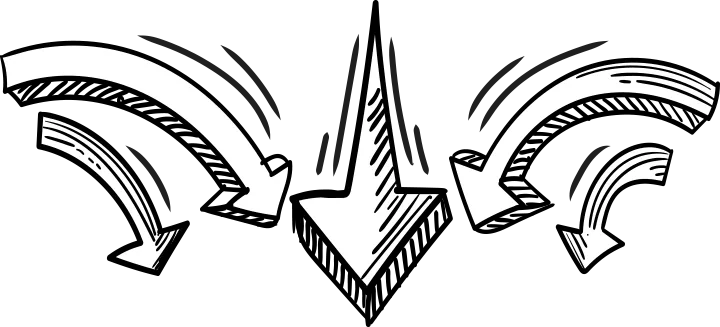I was speaking with an advertiser the other day, and they asked about how non-traditional affiliates fit within the affiliate program. It’s a great question, and one that we get often. The reason it’s a great question is that often there is an untapped segment of affiliates who can help with more than just driving traffic. They can help with site optimization, funnel optimization, SEM, email, social, cart abandonment, and provide affiliate tools. Which is why I call them vendor/affiliates. They provide more than a link on a website to drive traffic. This post is about those types of affiliates.
One of the coolest parts about affiliate marketing is how it can bridge traffic across the whole ecommerce platform. You might be thinking that is a bad thing, and sometimes labeled as cannibalism. Handled incorrectly, it can earn that moniker. Handled correctly, it has proven to be a very effective and incremental conversion funnel. All on a performance basis.
I am sure you are familiar with the typical affiliate categories:
- Content/niche
- Coupon
- Loyalty
All well known affiliate types who are common players in the affiliate space. Each type having their own strengths and weaknesses.
There is a whole other segment of affiliates who do not fit within those three categories. I call them vendor/affiliates. Kind of like those animals that are two things. You know… Manbearpigs or Tasseled Wobbegongs. Yes, that is a thing.
What many who manage an online marketing website don’t realize is that the affiliate channel can help with every one of your ecommerce traffic funnels. The reason I call these publishers vendor/affiliates is because they can operate like a 3rd party traffic source, an affiliate tool, or site optimization. All on a performance basis.
So who are these Tasseled wobbegongs, and what can they do?
They can help you with your cart abandonment, with your site DNS errors, offer feeds, offer reach and site optimization – all within the performance model that affiliates are known for. They don’t get paid unless you get paid, and can operate within your established affiliate tracking platform. Or, in some cases not through the tracking network if you want.
I reached out to a couple of my good friends who fit within this category and asked them “what is the best way to approach working with you”? It’s not quite just a plug-and-play like other affiliates can be, it can be more nuanced to get the most out of the relationship.
After inviting or accepting FMTC into your affiliate program, you will not see sales generated directly from us. FMTC collects, tests, standardizes and enhances your deals, offers, and coupons and then redistributes them (via our API) to other affiliates who you’re already working with. So while you won’t see sales generated from FMTC’s publisher account, you will see an increase in sales when you partner with us.
I really like how Eric approached this. It reinforces why I call them vendor/affiliates. They drive traffic and sales, but not quite how you may be used to. As for FMTC, they are a support tool for existing affiliates to help optimize for traffic total growth. One of the most important publishers to get optimized in any affiliate program.
Below is another example from an affiliate who helps with cart abandonment:
What we often hear is confusion. Advertisers are not sure what to make of us. Are we a vendor or an affiliate? They sometimes find it hard to believe that we work on an performance basis/affiliate model only. They always want to ask if we charge a set up fee on top of the monthly commission. Since we provide website abandonment solutions and are not a deal site or content site, we don’t fit within the typical box they may be used to. There is that initial barrier that we need to overcome in terms of costs, but once we have, advertisers quickly see the value of our services and appreciate that we put our money where out mouth is. It is a win/win situation as we help the client achieve their goals and only get paid when we do so.
You are likely starting to see how these affiliates are different, and don’t fit within a traditional affiliate model. We have seen these types of often overlooked publishers doing incredible volume.
There are many more instances of these types of affiliates. I recommend looking at every traffic opportunity because you may miss out on some potential you never would have considered before. It also shows the power of performance marketing and how it’s not quite like any other ecommerce channel. So when you are setting up your program, or looking to optimize one, be sure to look past just those 3 typical categories of affiliates. It’s also a great way to push a program over a plateau, or take a mature program to that next step.
Happy to talk about this further if you have any questions. Feel free to reach out to me at brian@jebcommerce.com


